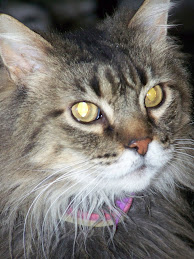Over a week ago, the agency I work for hosted a colleague of the famous Ruby Payne, who is the expert on poverty. It was such a good training I looked down to realize time was slipping away but I wanted so much more. Lest those of you reading think this topic of poverty only affects those of use working in social work or teaching in a school downtown, let me reassure you poverty is all over our community and nation. You are around it every time you step into the walls of your church, attend a local event, or visit the grocery store. And the thing is....it is a different life than what most of you reading this can even fathom. So my writing today is to share a bit of what I've come to experience about poverty and perhaps it will increase your awareness, empathy, and engagement with others who are different than you. Perhaps it will mean Chistlikeness in new ways!!!
Poverty should be thought of in layers. It affects an individual within a family within a community.
Poverty is defined as the extent to which one does without resources. These could be emotional, social, or concrete resources.
Generational (2 or more) and situational (last 3-5 years) poverty are very different. Generational poverty will often have grief and loss deeply embedded, an overall acceptance of poverty as a way of life, and will not have hope without significant support. Situational poverty is more likely to be confronted by motivated individuals. Causes of situational poverty range from disability, domestic violence, divorve, death, deployment, discrimination, debt, dementia, disaster, drugs, and so much more.
If more than 42% of an organization consists of people affected by poverty the organization is greatly affected. Think about this for churches who are striving to reach out to communities.
Hidden rules are a large part of poverty. This refers to the unspoken cues and habits of a group. We all live with hidden rules - these come out of our environmnet. So for example, you may recognize a hidden rule at your workplace to be not to be late, not to take personal calls during work hours, not to express anger toward your boss. For someone who is not accustomed to this type of work environment, they can easily break these hidden rules over and over again resulting in termination because they are unaware this is a difference between their way of relating to the world and workplace expectations.
Think about this 59% of those in poverty spend more than 50% of their income on shelter alone. Housing is the engine that drives the chaos of poverty.
1/3 of the USA is the working poor. It is the tyranny of the moment.
When one bad thing happens to an individual in poverty, it means 4-5 bad things happen. For example, a person is driving with a blown out light on their vehicle. They get ticketed. They cannot pay the ticket therefore they continue driving. Some time later, they are stopped again and this time they have compounded fees from the first ticket plus another ticket. Their car is seized. They can no longer get to work. They lose their job. They lose their housing because no way to pay for their job. Therefore, their family must move which means their children must go to another school, live in another neighborhood, probably go live with a relative with 4 kids already in a 2-3 bedroom apartment. This family then gets evicted for violating the rules of HUD (which subsidizing their housing) so now 2 families are displaced. The local shelters are full and their is no place to go so they stay with someone they met through a job one time. This person deals drugs unbeknownst to the family. When the person is out one day, the police arrest her for her failure to pay her tickets and appear in court. Of course she got no notice of her court hearing since she no longer resided at a residence. What does the single mother do? Leave her children with the drug dealing household, call up one of the kid's fathers who used to beat her, or call Department of Child Services to come and take them since she's incarcerated? What a decision to face!
Poverty erodes good choices. The choices are between bad and bad.
So, where can you take this part one of poverty information from here? Recognize people in poverty are problem solvers and there are multiple causes to poverty including individual behaviors (choices), human and social capital (community's resources), exploitation (oppression), and political/economic structures.




















